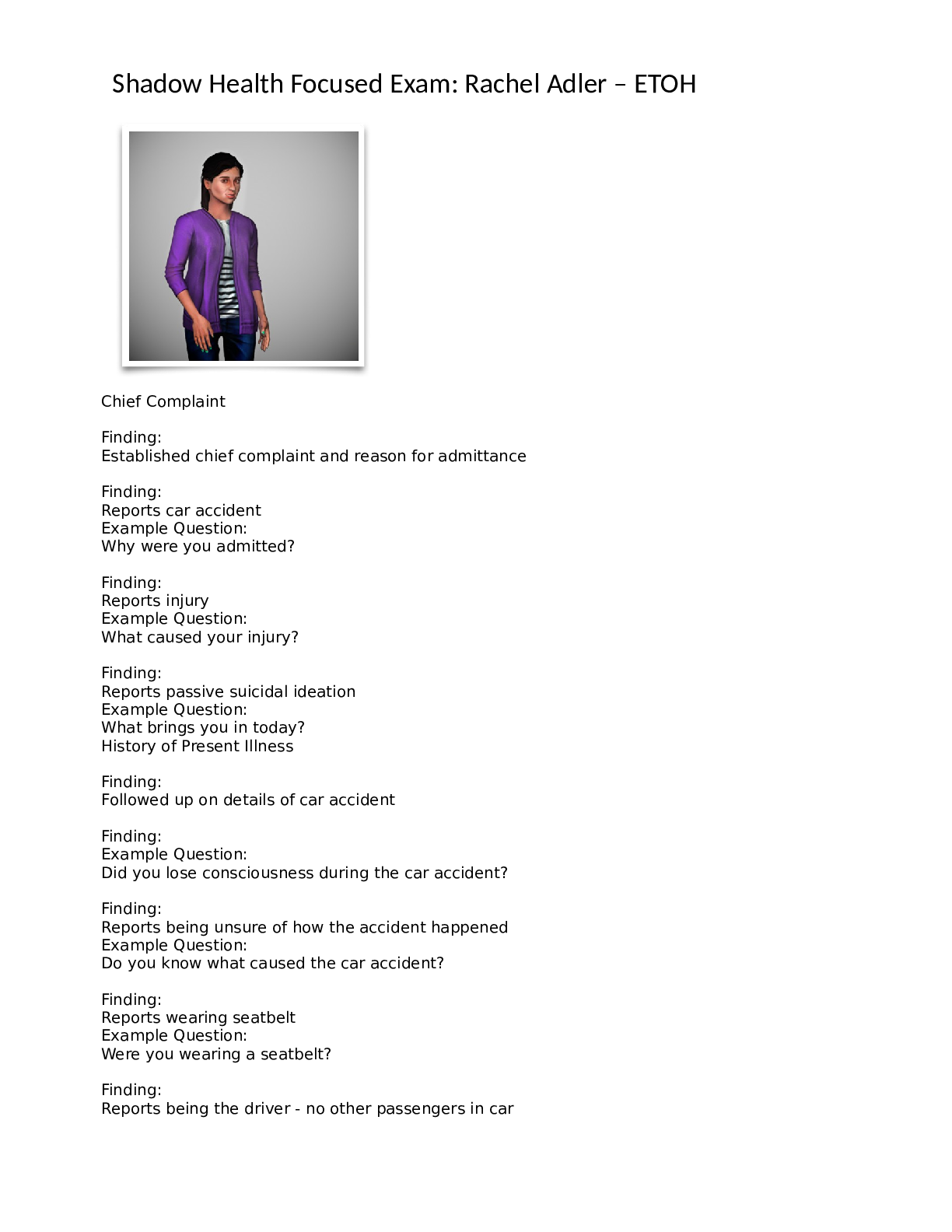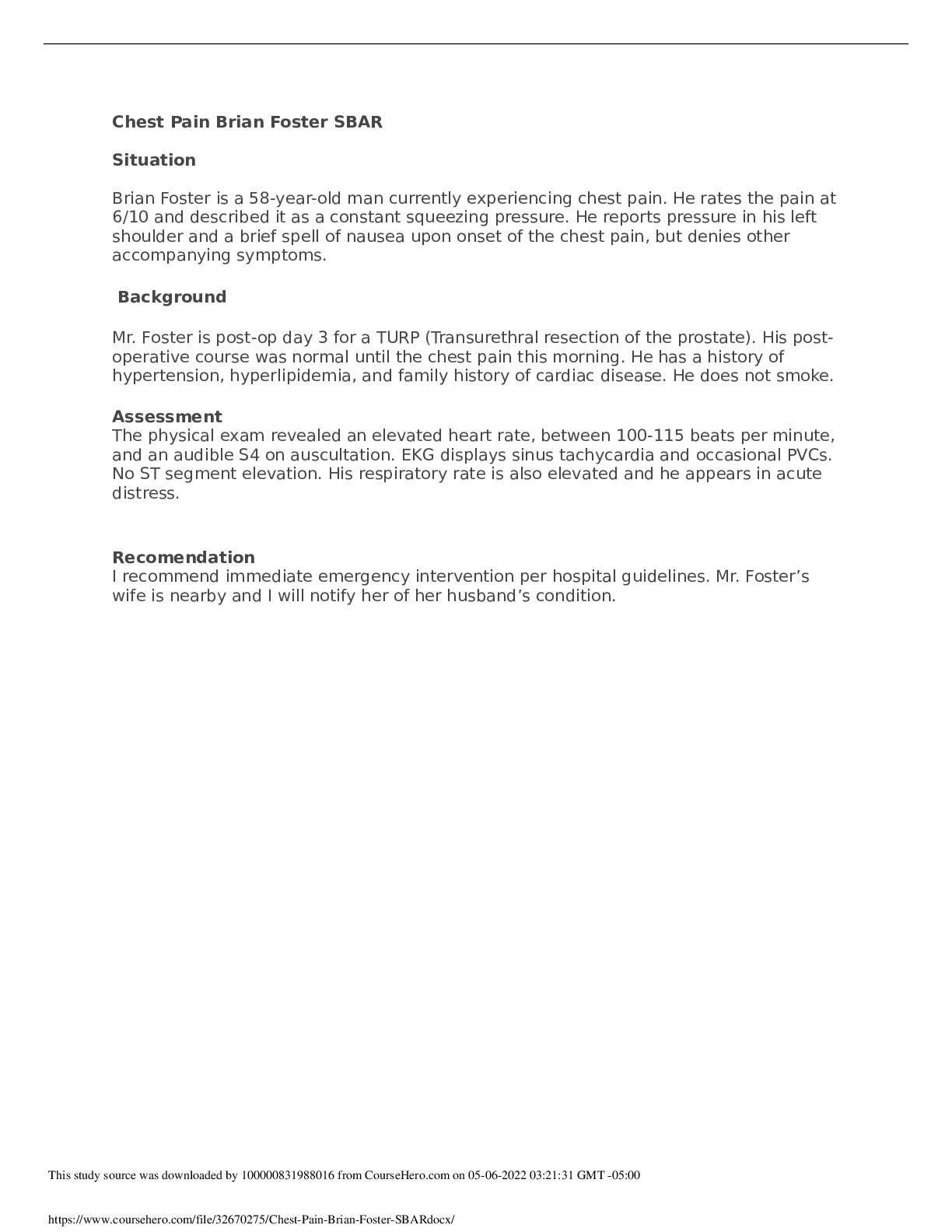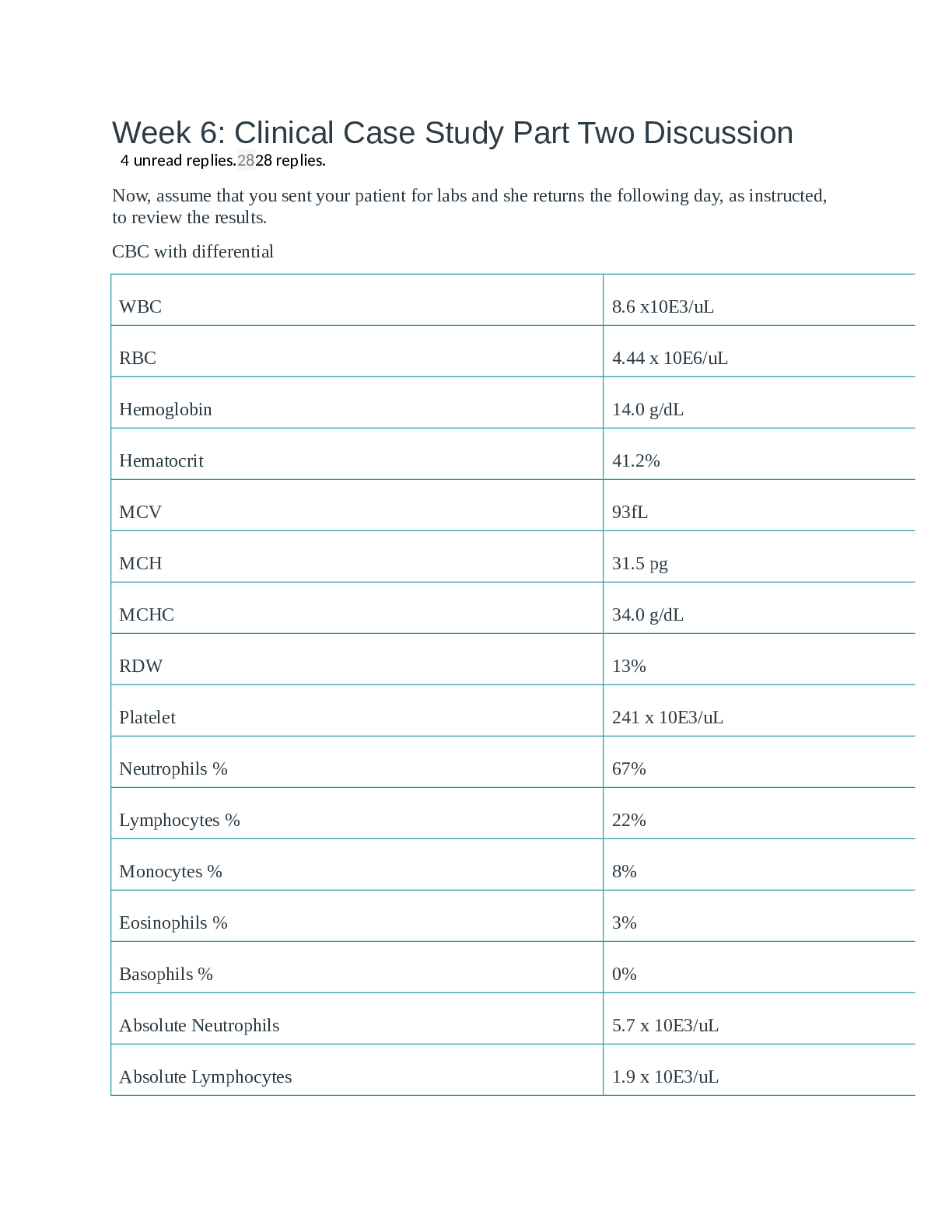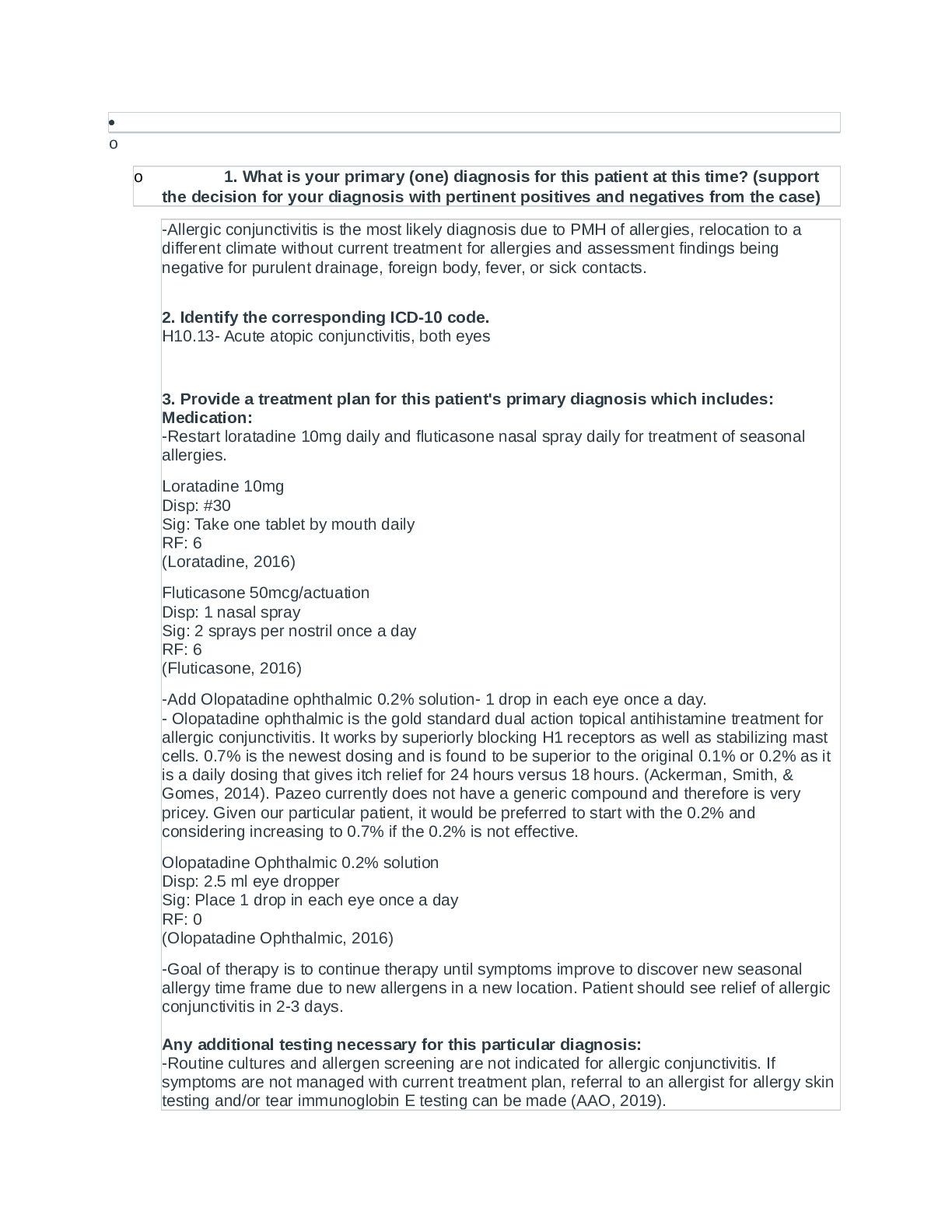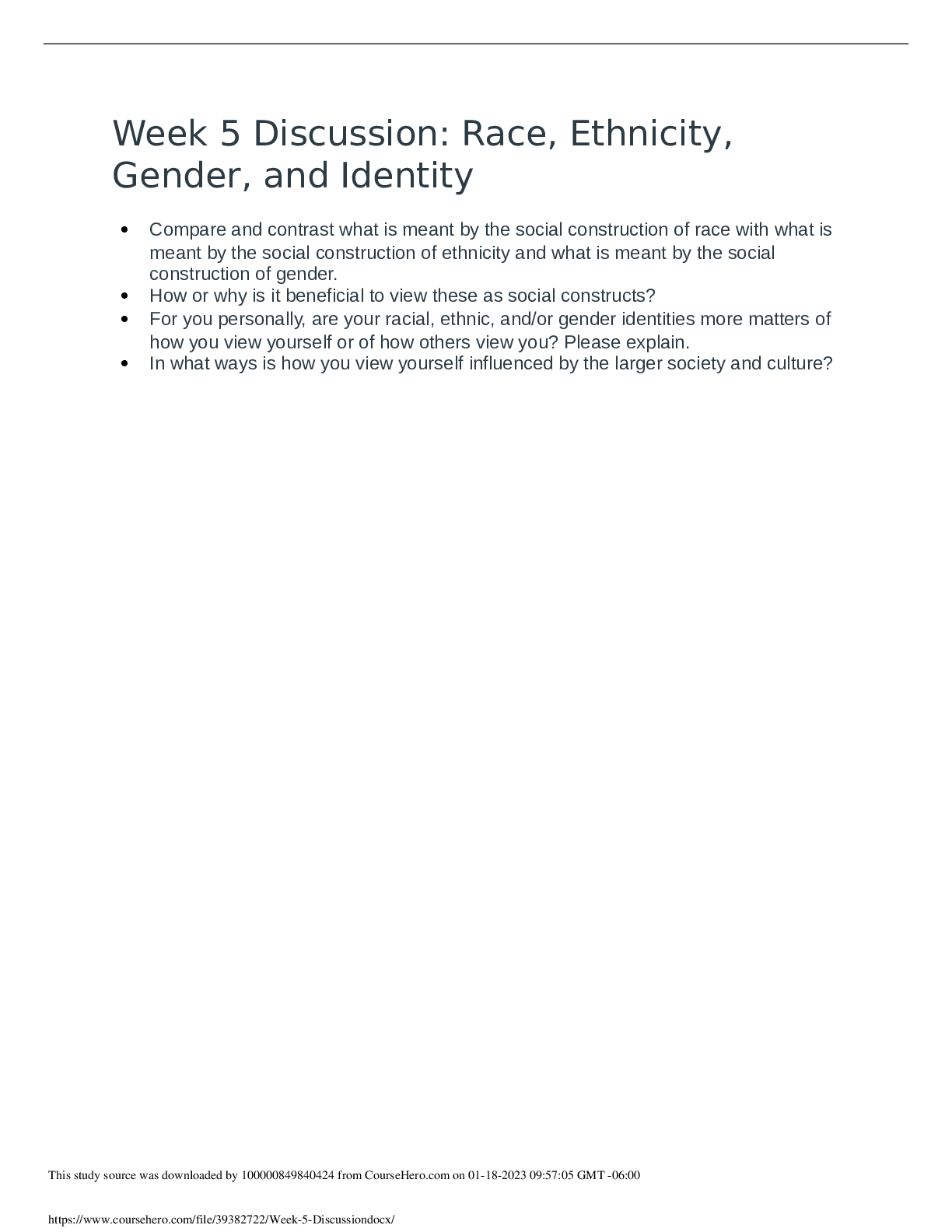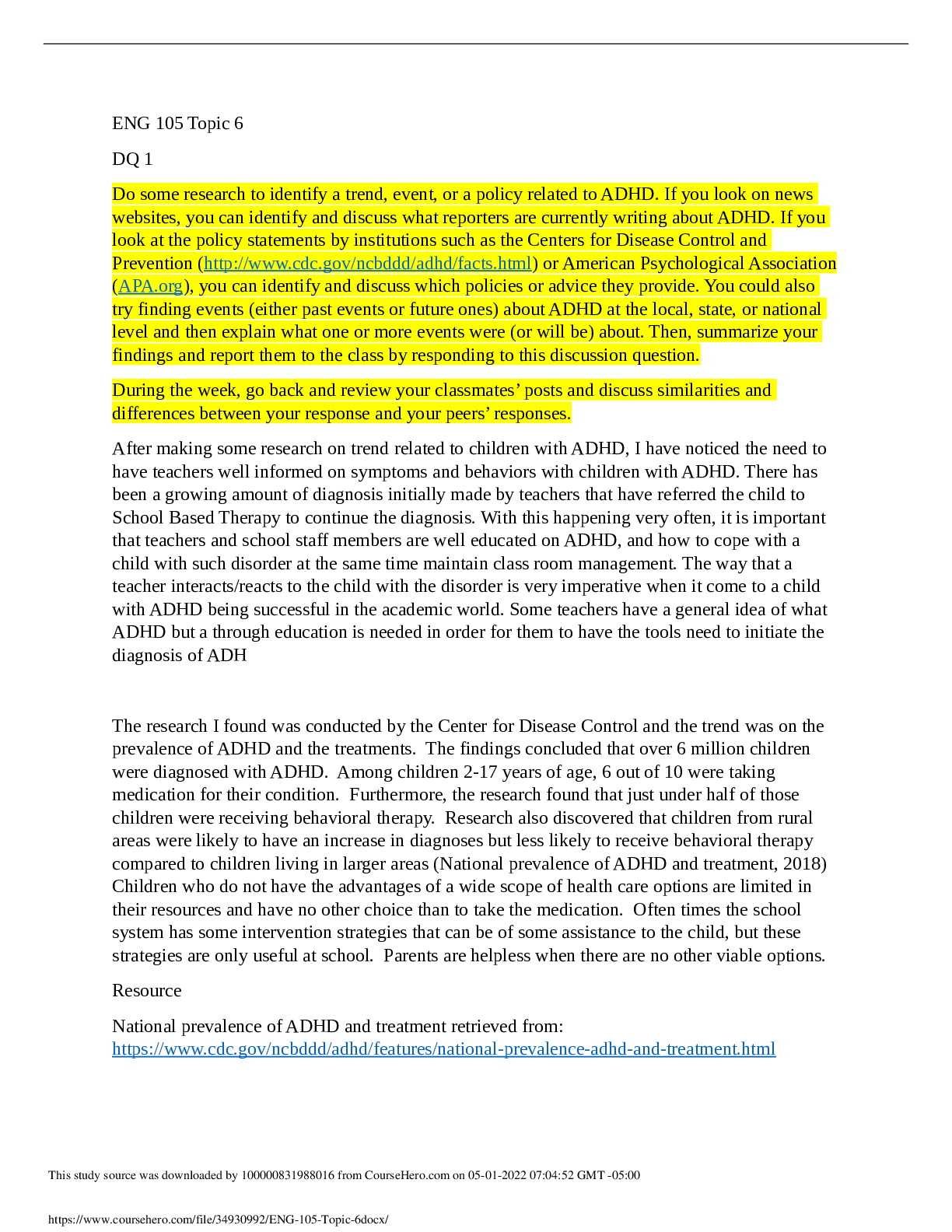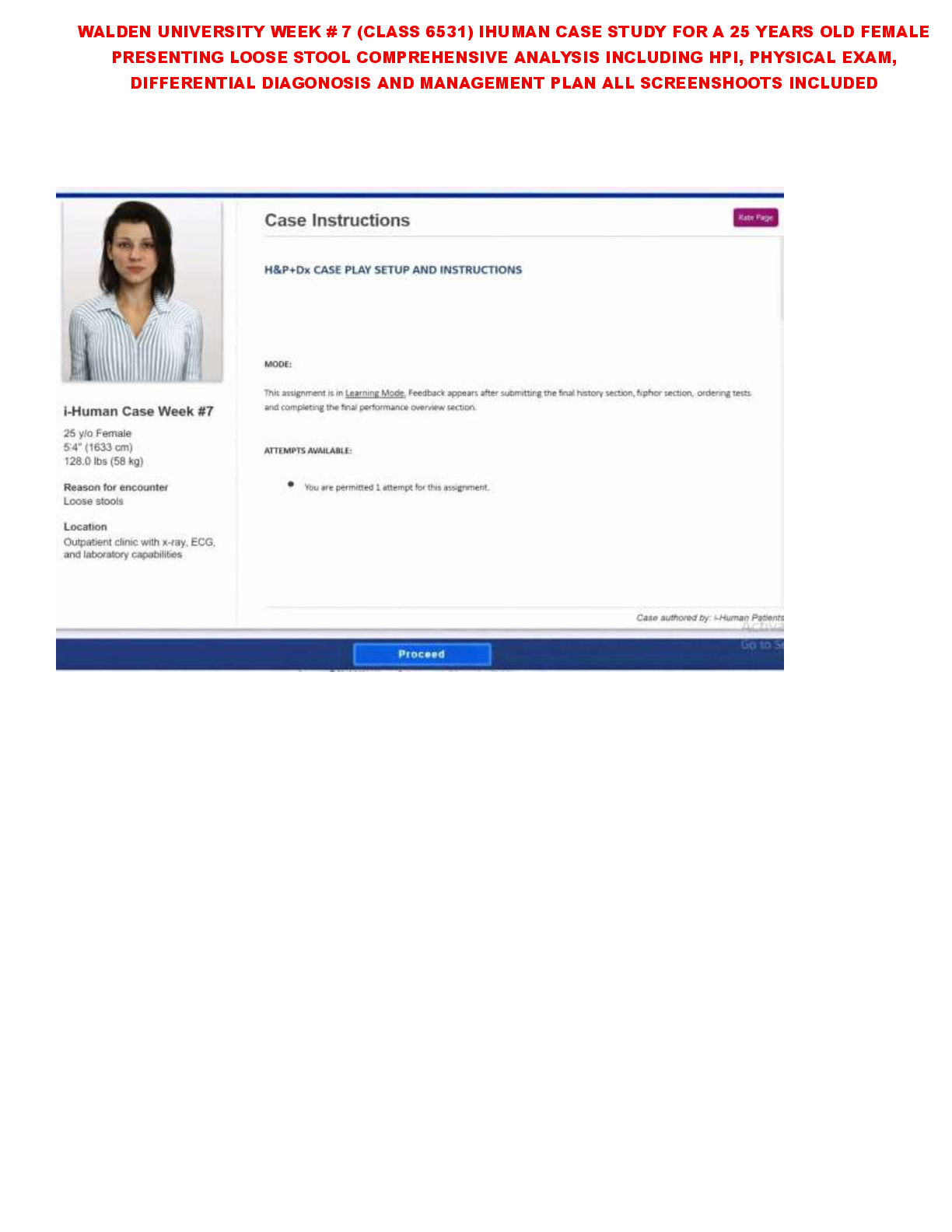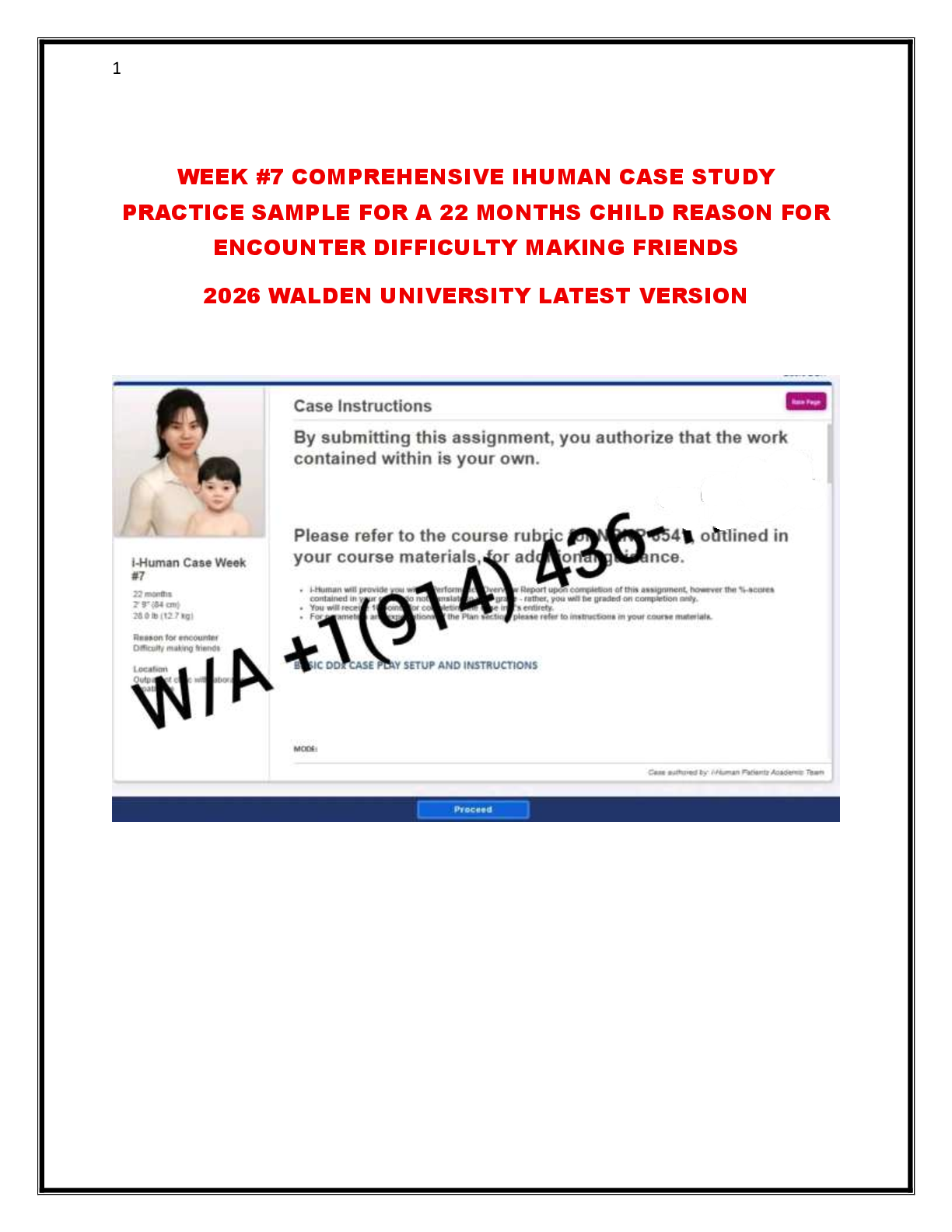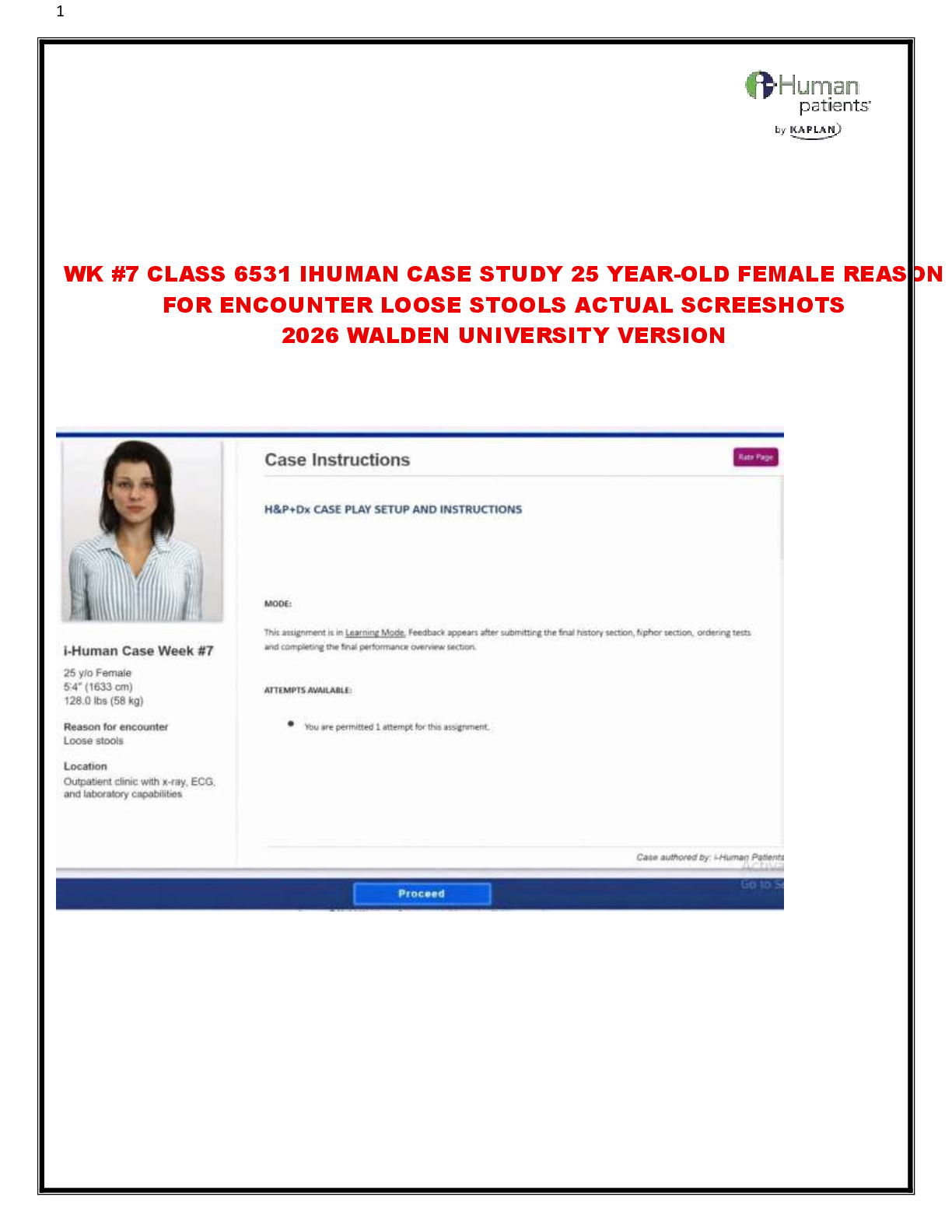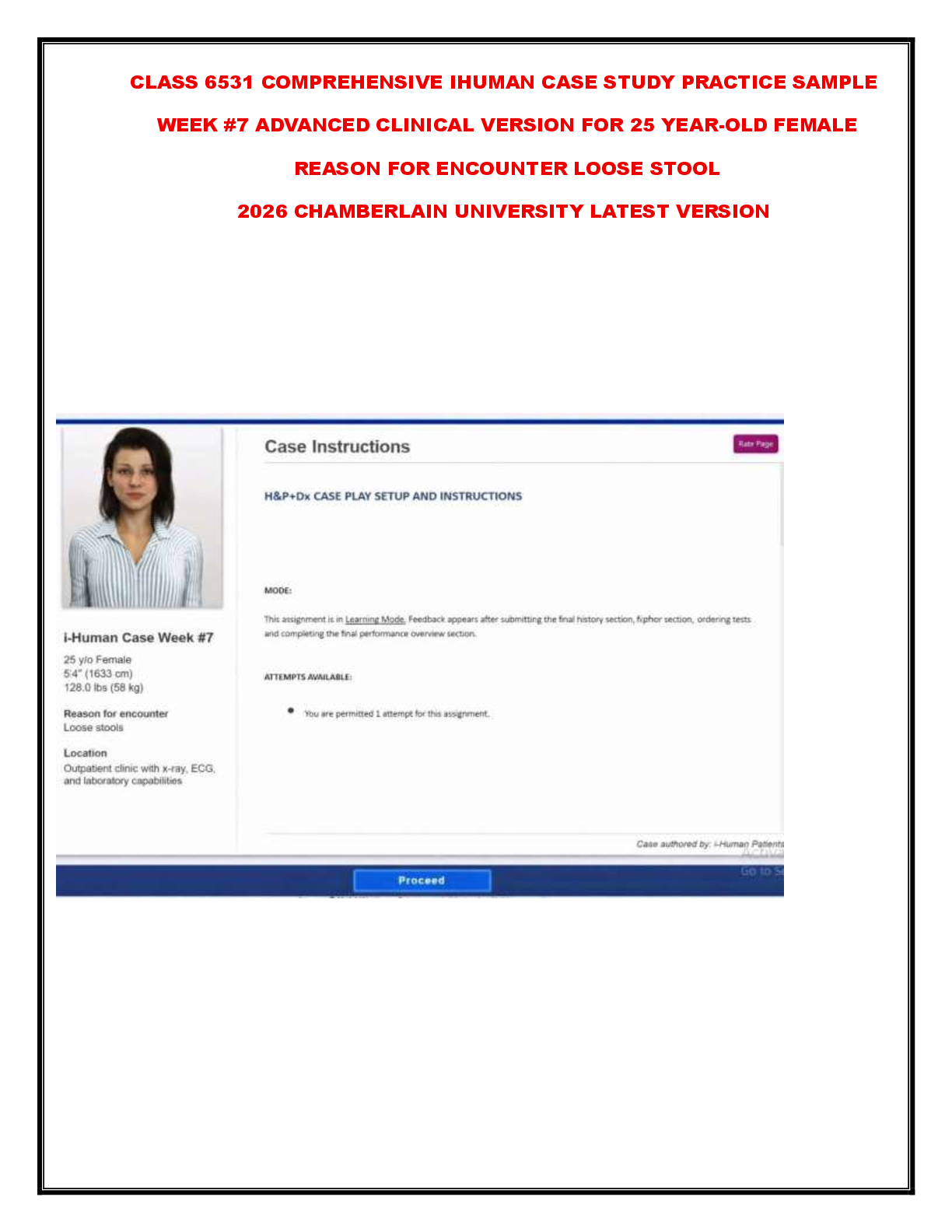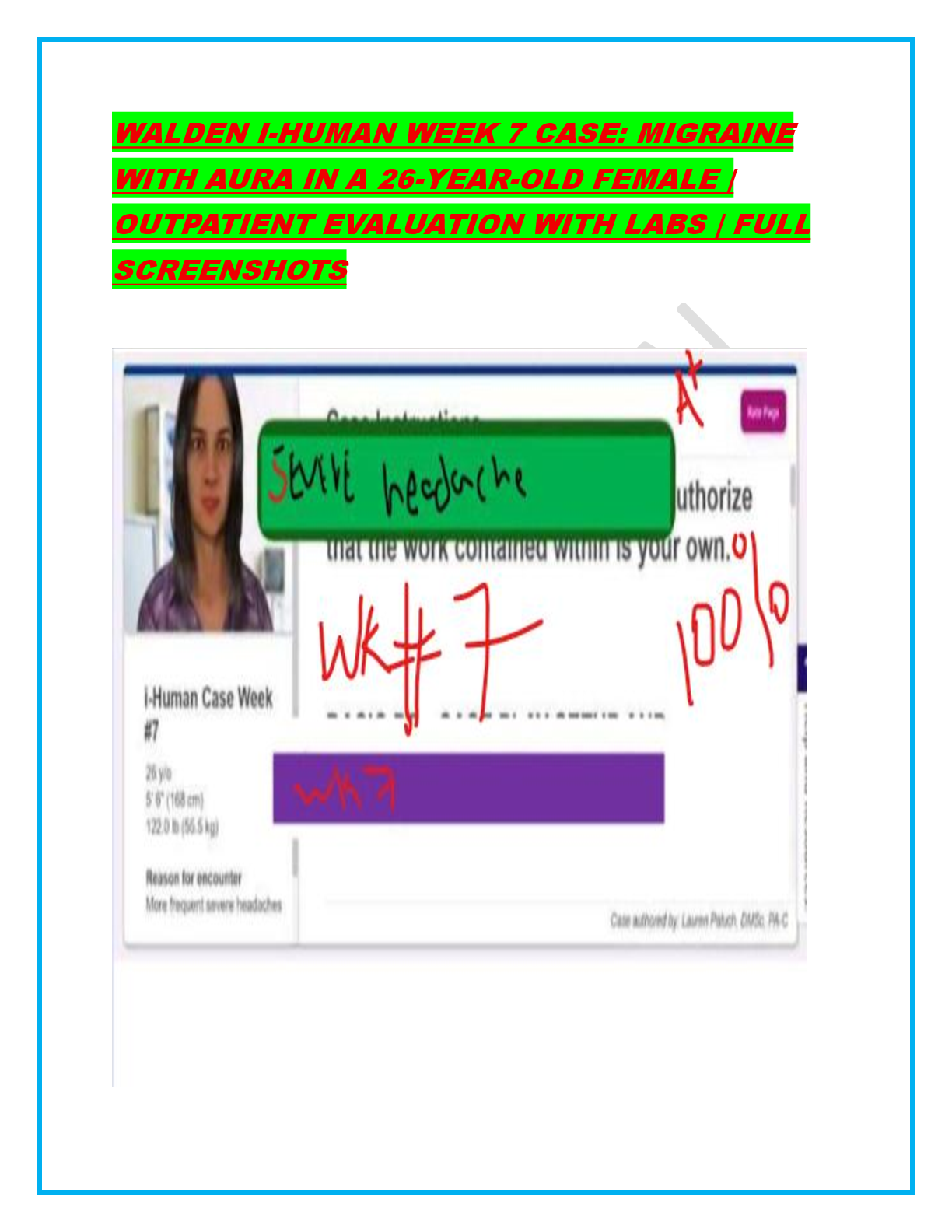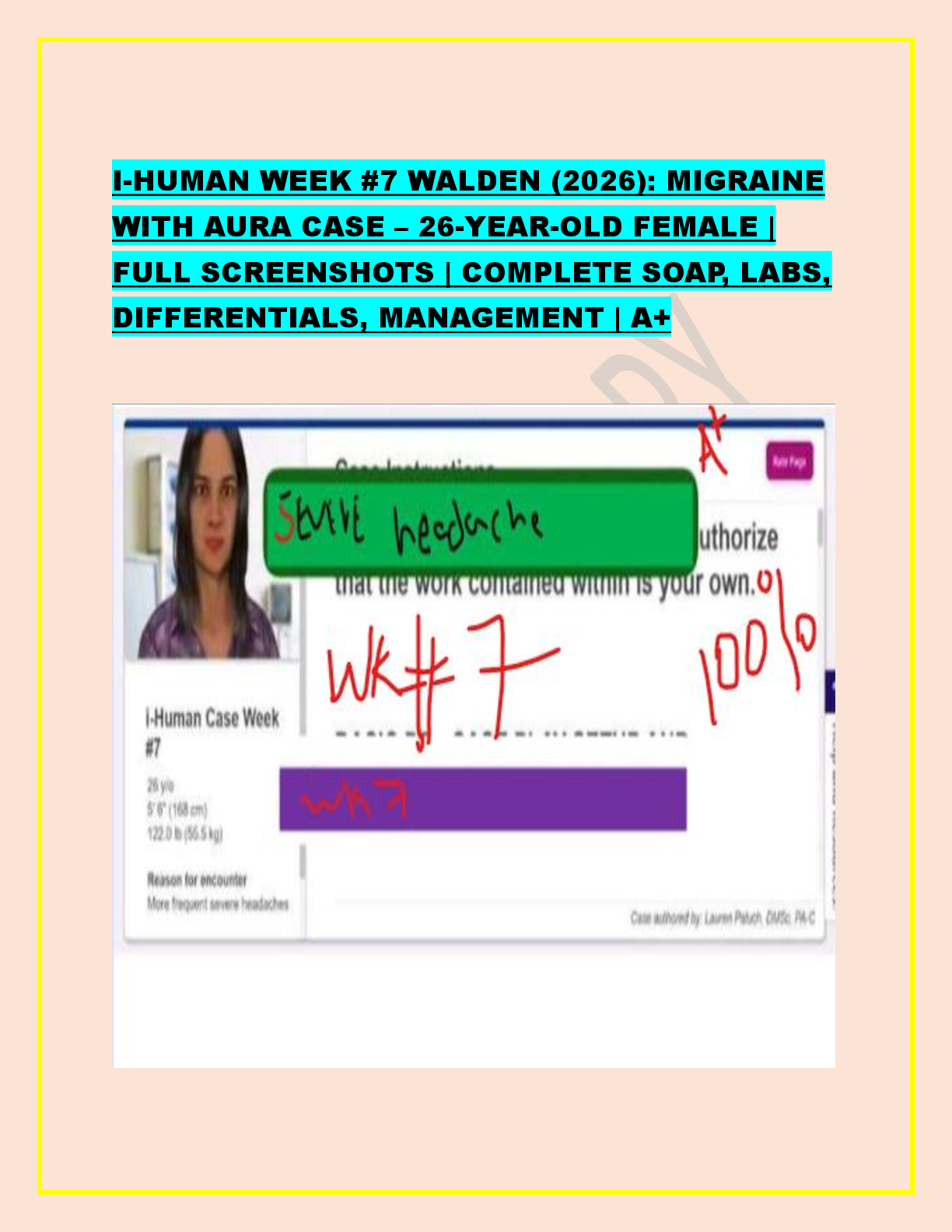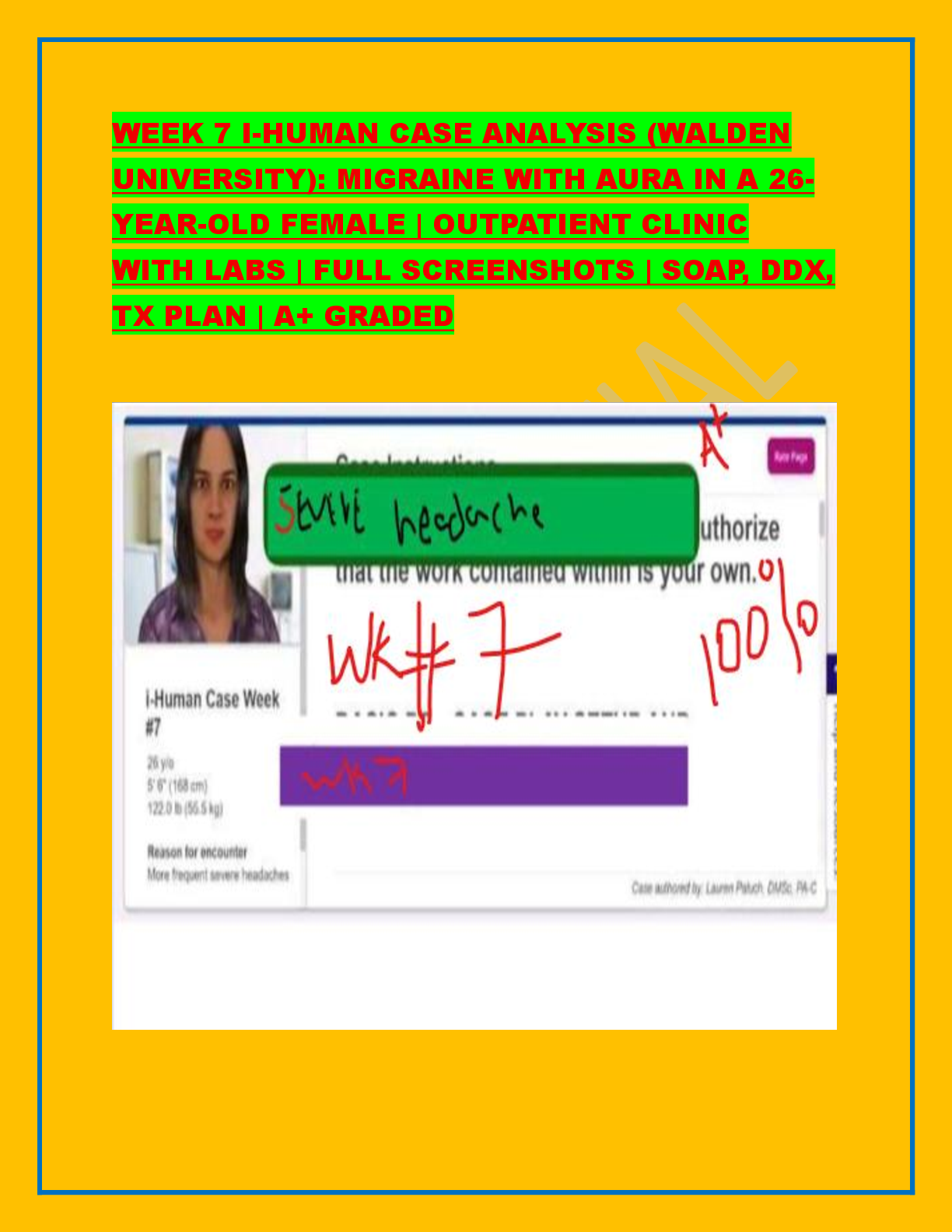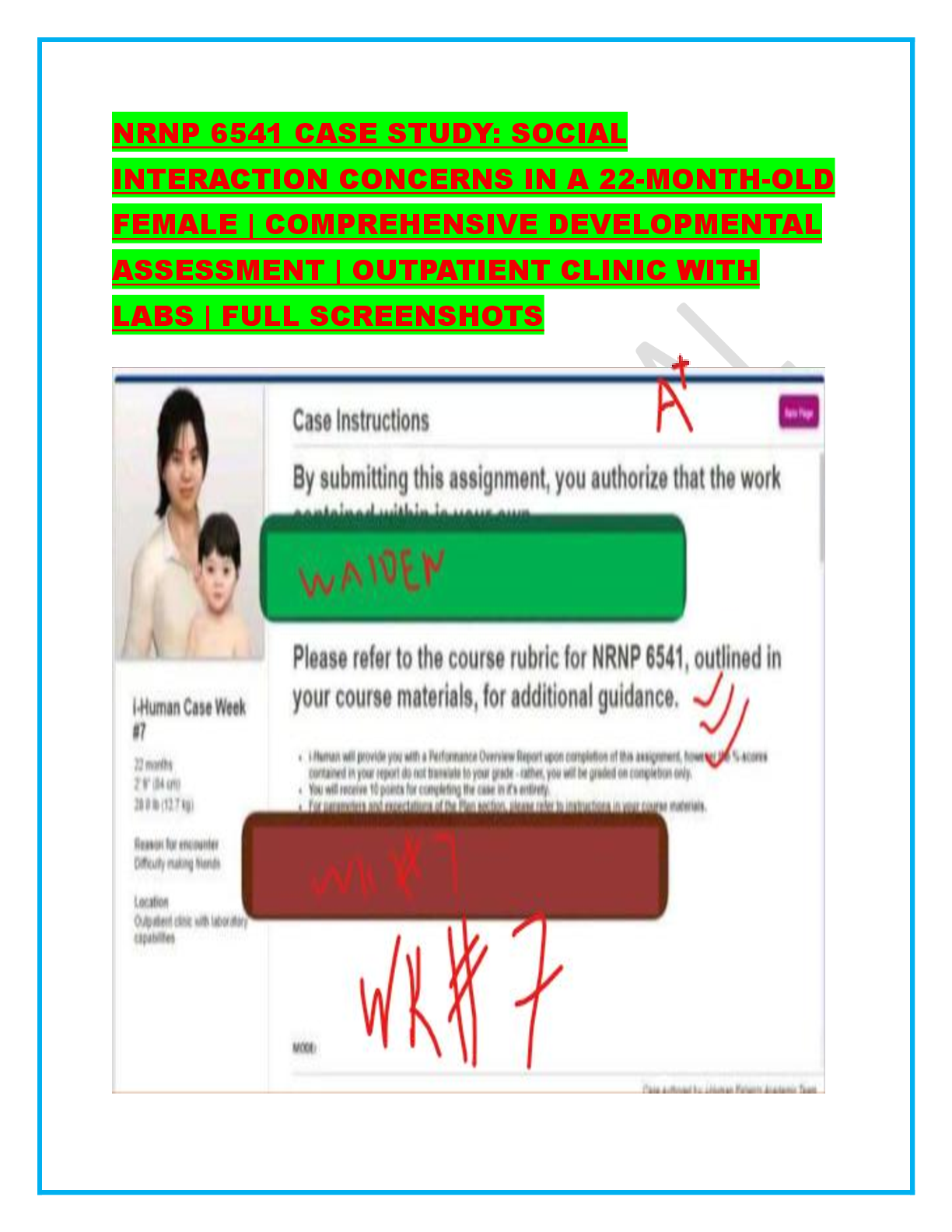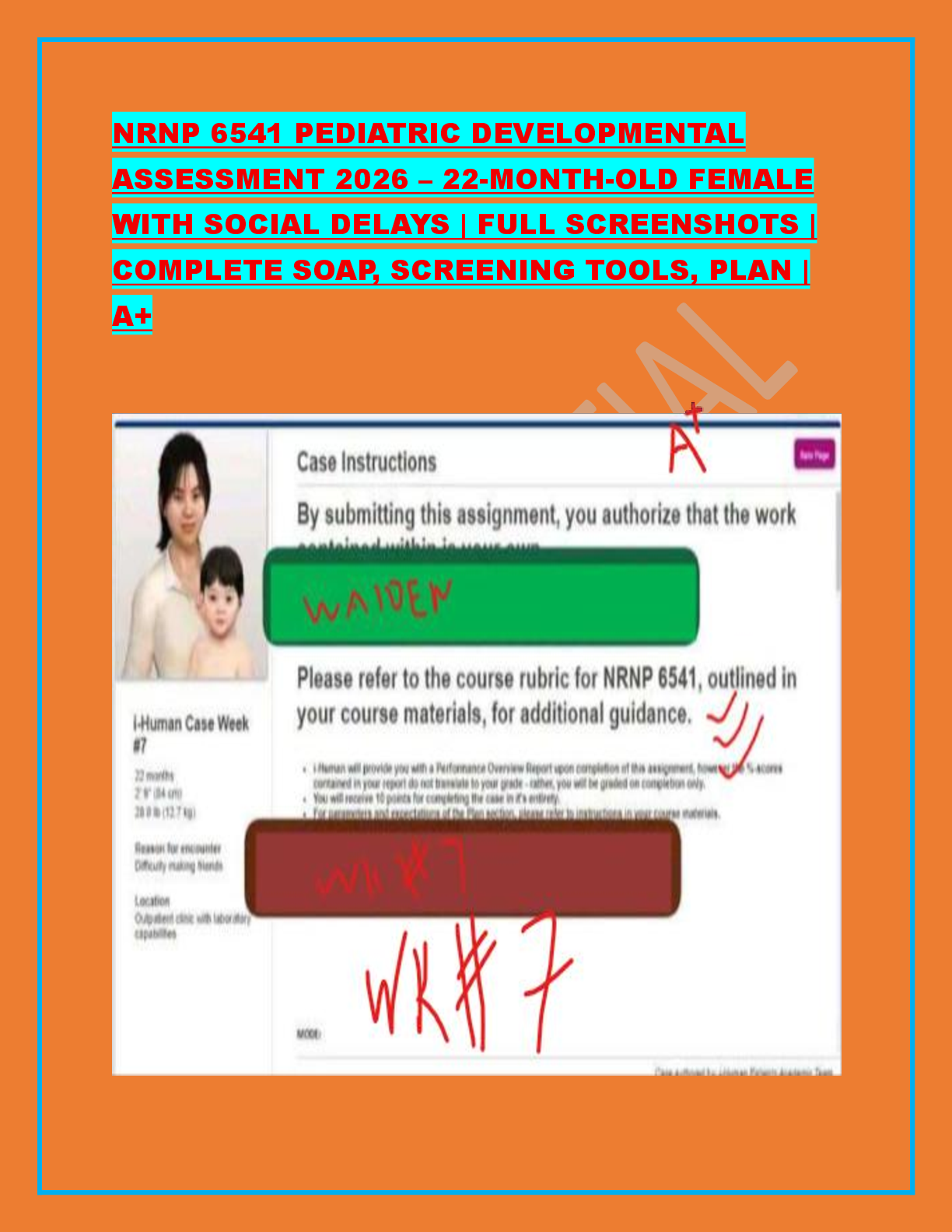*NURSING > CASE STUDY > Ron Jackson - Alzheimers_Dementia_2022 | Dementia/Physical Aggression (All)
Ron Jackson - Alzheimers_Dementia_2022 | Dementia/Physical Aggression
Document Content and Description Below
Dementia/Physical Aggression Ron Jackson, 87 years old Primary Concept COGNITION Interrelated Concepts (In order of emphasis) • Psychosis • Mood and Affect • Coping • Clinical Judgment ... NCLEX Client Need Categories Percentage of Items from Each Category/Subcategory Covered in Case Study Safe and Effective Care Environment • Management of Care 17-23% ✓ • Safety and Infection Control 9-15% Health Promotion and Maintenance 6-12% ✓ Psychosocial Integrity 6-12% ✓ Physiological Integrity • Basic Care and Comfort 6-12% ✓ • Pharmacological and Parenteral Therapies 12-18% ✓ • Reduction of Risk Potential 9-15% ✓ • Physiological Adaptation 11-17% ✓ Part I: Recognizing RELEVANT Clinical Data History of Present Problem: Ron Jackson is an 87-year-old Caucasian male with a medical history of hypertension and Alzheimer's disease who was brought to the emergency department (ED) by paramedics for evaluation of hallucinations, increased agitation, and aggressive behavior toward Shirley, his elderly wife. His daughter was visiting and witnessed Ron becoming angry for no apparent reason, telling Shirley she had to leave the house. He then pushed her, causing her to fall to the ground. Ron has become progressively more agitated the past year and was started on quetiapine. Shirley confirms that Ron has been more verbally abusive the past week, believing that she divorced him and that she needs to get out of the house, but no physical aggression took place until today. Ron currently complains of a headache and insists that he got this because “the Koreans beat me up real good in the ambulance!” Personal/Social History: Ron lives at home with Shirley, his wife of 62 years and has three children. Ron is a Korean War veteran who saw active duty and is a retired salesman. Because his wife has been struggling to care for him, his family is in the process of making arrangements for him to reside at a local memory care unit. What data from the histories are RELEVANT and must be interpreted as clinically significant by the nurse? (Reduction of Risk Potential) RELEVANT Data from Present Problem: Clinical Significance: 87 y/o male Hx of HTN and Alzheimer’s Brought in for evaluation of hallucinations, increased agitation, and aggressive behavior towards his wife His daughter witnessed him becoming more aggressive towards his wife and he pushed her. More verbally abusive toward wife Believes his wife left him and “the Koreans beat me up real good in the ambulance!” Started on quetiapine (Seroquel) Complains of headaches Geriatric patient It is important to understand the symptoms of early, moderate, and late stages of dementia. This patient has psychotic features and agitation, showing symptoms of moderate to severe stages of Alzheimer's disease. High risk for becoming physically aggressive and violent toward other people. Safety needs to be prioritized. Persecutory delusions. Anger could sometimes be a defense mechanism for fear and anxiety. Atypical antipsychotic. Black box warning for use in geriatric populations. Want to know what other meds he is taking. Want to make sure this isn’t due to a hypertensive crisis or something medical. 1. Identify the relationship between the PMH and home medications. Which medication treats which condition? Draw a line to connect the PMH to the correct medication. 2. Is there a relationship between any problem in his past medical history and the present problem? If so, describe. His agitation and delusional behavior are indicative of a progression of the alzheimers. Need to look at medications he is taking for Alzheimer's to see if there needs to be adjustments to those. There is an increased difficulty for caring for this patient at home. Patient Care Begins: RELEVANT Data from Social History: Clinical Significance: He is married with a daughter. A Korean war vet. Wife is struggling to take care of the patient. His wife has been struggling to care for him, his family is in the process of making arrangements for him to reside at a local memory care unit. When people grow older, they can progress to older and more powerful memories. War memories in particular can be quite powerful. Might need a consultation from the case management team to find a place for this patient. He will likely not be able to go home from here because his wife is in an unsafe situation Could potentially increase his level of agitation, potentially making things worse Past Medical History (PMH): Home Meds: Hyperlipidemia - Simvastatin 20 mg PO HS Hypertension - Triamterene-HCTZ 75-50 mg PO daily Alzheimer's disease - Donepezil 10 mg PO at HS - Memantine 10 mg PO BID Agitation/Delusions - Quetiapine 50 mg PO BID Donepezil 10 mg PO at HS Aspirin 325 mg PO daily Memantine 10 mg PO BID Simvastatin 20 mg PO HS Triamterene-HCTZ 75-50 mg PO daily Quetiapine 50 mg PO BID Current VS: P-Q-R-S-T Pain Assessment: T: 98.0 F/36.7 C (oral) Provoking/Palliative: “Those Koreans banged my head in the ambulance.” P: 78 (regular) Quality: “That’s a stupid question!” R: 18 (regular) Region/Radiation: “My head hurts all over!” BP: 148/90 Severity: “It just hurts!” O2 sat: 98% room air Timing: “All the time.” What VS data are RELEVANT and must be interpreted as clinically significant by the nurse? (Reduction of Risk Potential/Health Promotion and Maintenance) RELEVANT VS Data: Clinical Significance: 148/90 “Those Koreans banged my head in the ambulance.” “My head hurts all over!” “All the time.” High BP- Hx of Hypertension. He is agitated right now so this could be a reason why. He has delusions that make him think the EMTs hurt him. Want to keep an eye on this headache. Could be a side effect of his medication or it is possible that he fell at home and does not remember. Important to follow up with family/caregivers about this. Current Assessment: GENERAL APPEARANCE: Thin elderly male, appears stated age, sitting upright on stretcher, appears tense RESP: Breath sounds clear with equal aeration bilaterally ant/post, non-labored respiratory effort CARDIAC: Pink, warm & dry, no edema, heart sounds regular with no abnormal beats, pulses strong, equal to palpation at radial/pedal/post-tibial landmarks, brisk capillary refill NEURO: Oriented to person only, denies hallucinations GI: Abdomen flat, soft/non-tender, bowel sounds audible per auscultation in all four quadrants GU: Voiding without difficulty, urine clear/yellow SKIN: Skin integrity intact, skin turgor elastic, no tenting present Mental Status Examination (MSE): APPEARANCE: Disheveled appearance; cooperative at times, other times irritable MOTOR BEHAVIOR: Variable; at times pacing and agitated; at other times sits quietly SPEECH: Able to understand what the patient is saying MOOD: Variable; quiet and calm with sudden episodes of anger, anxiety, and irritability AFFECT: Variable: looks calm, then may suddenly appear angry THOUGHT PROCESS: Able to understand what the patient is saying THOUGHT CONTENT: Paranoid and persecutory delusions/ideation; “Koreans” are harming him; delusions “believes wife divorced him” PERCEPTION: Denies hallucinations INSIGHT: Grossly impaired; attributes H/A to an attack by “Koreans”; not aware of illness or reason for ER visit JUDGMENT: Grossly impaired COGNITION: Oriented to person only. Significant short- and long-term memory deficits SUICIDAL/HOMICIDAL: High risk for physical aggression toward others; recently assaultive toward wife; unable to assess suicide ideation at this time What assessment data are RELEVANT and must be interpreted as clinically significant by the nurse? (Reduction of Risk Potential/Health Promotion & Maintenance) Lab Results: What lab results are RELEVANT and must be recognized as clinically significant by the nurse? (Reduction of Risk Potential/Physiologic Adaptation) RELEVANT Assessment Data: Clinical Significance: Appears tense Oriented to person only, denies hallucinations The patient could have some anxiety related to his current mental state. Only oriented to self, not place or time. RELEVANT Mental Status Exam Data: Clinical Significance: Disheveled appearance, sometimes irritable At times pacing and agitated; at other times sits quietly Variable mood; quiet and calm with sudden episodes of anger, anxiety, and irritability Labile affect: looks calm, then may suddenly appear angry Paranoid and persecutory delusions/ideation; “Koreans” are harming him; delusions “believes wife divorced him” He is very labile, increased irritability, anger, and agitation. This puts him at an increased risk for hurting himself and others. Lack of insight, increasing his anxiety Impaired memory- also can increase anxiety (See above) This could increase his anxiety level because he believes that he is back in the war. He is also having persecutory delusions related to his wife, further increasing his potential anxiety. Complete Blood Count (CBC) WBC HGB PLTs % Neuts Bands Current: 5.8 14.5 154 69 0 Last Adm: 6.5 14.2 188 75 0 RELEVANT Lab(s): Clinical Significance: TREND: Improve/Worsening/Stable: All WNL Nothing is out of normal limits. No physiological concerns with this patient at this point. Stable What lab results are RELEVANT and must be recognized as clinicall [Show More]
Last updated: 3 years ago
Preview 1 out of 12 pages
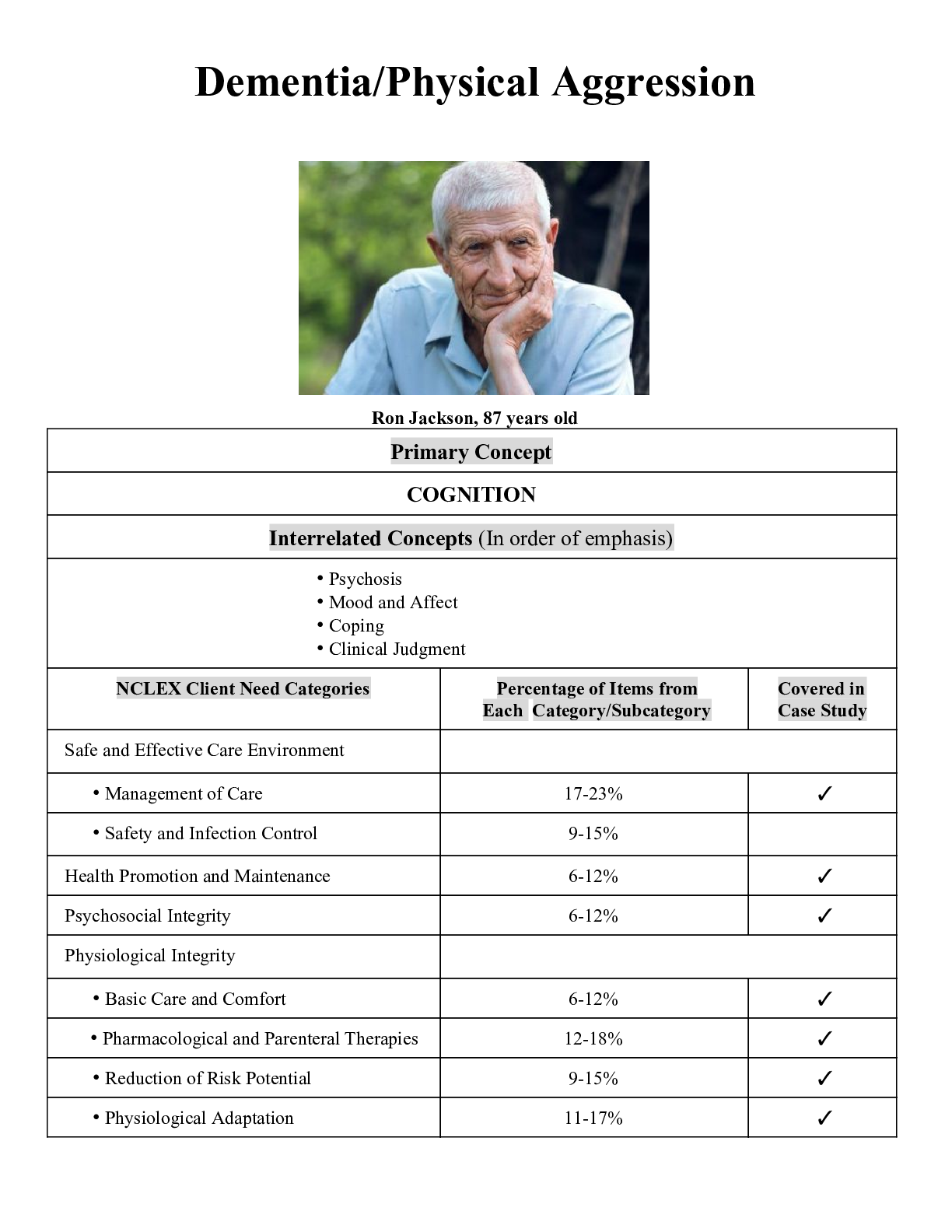
Buy this document to get the full access instantly
Instant Download Access after purchase
Buy NowInstant download
We Accept:

Reviews( 0 )
$11.00
Can't find what you want? Try our AI powered Search
Document information
Connected school, study & course
About the document
Uploaded On
Apr 15, 2022
Number of pages
12
Written in
All
Additional information
This document has been written for:
Uploaded
Apr 15, 2022
Downloads
0
Views
197


